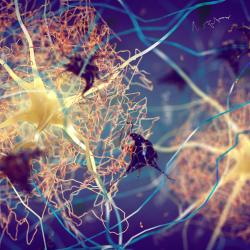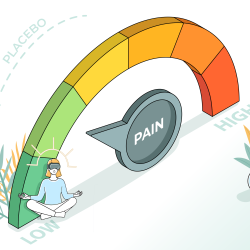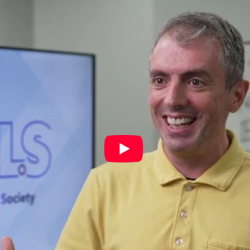UMD Computer Science Ph.D. Student Denis Peskov Awarded DAAD Scholarship to Conduct Research in Germany
Peskov hopes to help computers and people work better together to translate languages
Denis Peskov (M.S. ’18, computer science), a University of Maryland Ph.D. student in the Department of Computer Science, has been awarded a German Academic Exchange Service (Deutscher Akademischer Austauschdienst, DAAD) scholarship. DAAD is the largest international educational exchange program in Germany and comparable to the Fulbright Student Program in the U.S.
 The opportunity will enable Peskov to conduct research in natural language processing—the task of teaching computers to understand human language—with Alexander Fraser, a professor at Ludwig-Maximilians-Universität München in Munich, Germany.
The opportunity will enable Peskov to conduct research in natural language processing—the task of teaching computers to understand human language—with Alexander Fraser, a professor at Ludwig-Maximilians-Universität München in Munich, Germany.
“Language is fundamental to the human experience and computers are the defining technology of this century,” said Peskov, who began his graduate studies at UMD in 2016. “I’m interested in natural language processing because it is the intersection of those two areas.”
During his year in Munich, Peskov plans to continue work on a project to assist simultaneous interpreters who translate the words of live speakers in real time during events such as meetings of the United Nations. Peskov is currently conducting this research at UMD with his graduate advisor, Computer Science Associate Professor Jordan Boyd-Graber.
Simultaneous interpretation is a difficult and taxing job that even the most skilled humans can only perform for 20 to 30 minutes at a time. Peskov hopes to ease this burden with a device that can listen to a speaker and automatically suggest translations to a human interpreter in real time. The human interpreter, however, makes the final decision on what to say and does the actual speaking.
“We strive to make interpreters’ work less stressful by letting humans and computers work together, sharing their different strengths,” Peskov said.
A roadblock to Peskov’s work is that, as anyone who has used a digital assistant such as Siri or Alexa knows, algorithms that listen to people can make mistakes. For instance, if a speaker says “cat,” an algorithm may misinterpret the word as “bat.”
Such mistakes can spread when translating between human languages, as a word transcribed incorrectly from the original speech would also appear incorrectly in the translation. During his year with Fraser, Peskov will work on translation algorithms that minimize the impact of transcription errors on translation.
“Professor Fraser is an expert in machine translation, which is a subfield of natural language processing that trains computers to automatically translate between human languages,” Peskov said. “Working closely with him will ensure that I choose and apply the best methods for my project.”
After he returns to UMD to complete his Ph.D., Peskov plans to apply natural language processing models to study how humans interact with each other online and how humans and computers can cooperate to answer questions.
Peskov received a Bachelor of Science in Foreign Service (B.S.F.S.) in science, technology and international affairs from Georgetown University in 2014.
###
Media Relations Contact: Irene Ying, 301-405-5204, zying@umd.edu
University of Maryland
College of Computer, Mathematical, and Natural Sciences
2300 Symons Hall
College Park, MD 20742
www.cmns.umd.edu
@UMDscience
About the College of Computer, Mathematical, and Natural Sciences
The College of Computer, Mathematical, and Natural Sciences at the University of Maryland educates more than 9,000 future scientific leaders in its undergraduate and graduate programs each year. The college’s 10 departments and more than a dozen interdisciplinary research centers foster scientific discovery with annual sponsored research funding exceeding $175 million.






